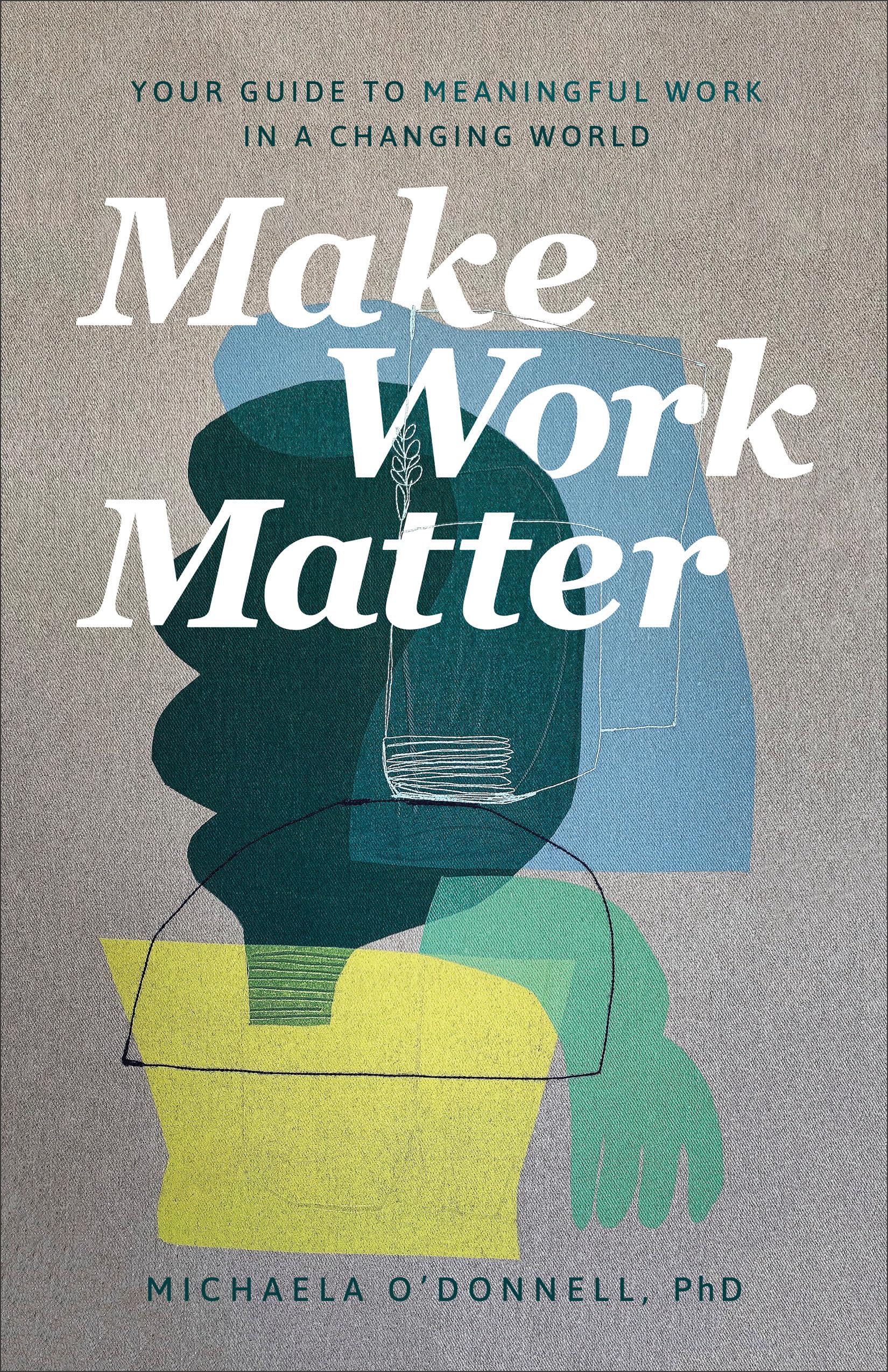With the subtitle of this book being ‘Your Guide to Meaningful Work in a Changing World’ the reader would assume that O’Donnell’s book would provide guidance on how we can be better at our jobs and find fulfillment with the paid work that we do. This book, however, does not really achieve this end. This is not to say that this is not a good book to read, but the reader needs to understand what they will get out of this book before reading it. This is a book that can assist the reader in acknowledging and using the gifts and talents God has given us for the work we do. The work and business examples that are provided in each chapter evolved from the research that the author conducted while completing her doctoral dissertation. This book is written by a woman who provides many examples of the challenges women have when balancing life and work. Each chapter includes many stories of leaders, employees, and entrepreneurs and their experiences with their work and work environment.
The book is written with three distinct sections, each having several chapters that expound on the focus of the section, with each chapter ending with some exercises that assist with the practical application of what was written about in the chapter. The first section is called ‘Where Do You Want To Go?’ and includes 3 chapters that discuss the challenges that most people are facing in today’s world of work. (Note that the author is writing for an audience in the developed world and does not include the challenges that someone might experience in under-developed nations). O’Donnell briefly discusses the economy, the new tools and technologies that are now used in work, and the feelings and emotions experienced by workers in today’s organizations. She proposes and challenges dysfunctional beliefs about work that Christians may have and attempts to explain what God’s calling is for our lives. Even though these chapters may set the stage for our current situation they don’t really motivate the reader to read further in the book. The saving grace of this section is Chapter 2, where the author discusses the concept of ‘lean in and let go’ and where she acknowledges that God is in control of our situations. This discussion possibly sets the stage for moving on into the second section of the book where the reader learns more about how to lean in and let go.
The second section of the book is entitled ‘Who Will You Become?’ and has 4 chapters that discuss how to be entrepreneurial in your work and business. In the author’s bio, listed on the back cover of the book, she is identified as an entrepreneur and so she has an understanding of what it feels like to start a business. Throughout the chapters in this section, she uses many of her own business experiences, in addition to the answers to questions she asked entrepreneurs while completing her doctoral research, to explain many of the concepts discussed in these chapters. O’Donnell refers to several significant topics such as the importance of building relationships, understanding creativity, and developing resilience skills. In this section of the book she utilizes many scriptural references to explain how God always uses relationships in the building of His kingdom, how creative the Lord was in the creation of the world and all that is in it, and how Jesus was resilient in all that He endured. The use of some of the biblical references, however, can appear to be forced when relating these to the topics being discussed. One example of this is in Chapter 7 where the author uses the Easter story as a demonstration for building resilience; this application to work in our current situations seems a bit contrived. Since this section of the book was focused on being entrepreneurial in your work, it may appear that this book is written for people who want to start their own businesses; this may cause some readers to feel that this book would not be a guidebook for them in making their work meaningful in a changing world.
The last section of the book is entitled ‘How Will You Get There?’ and includes 4 chapters that focus on having empathy, imagination, and taking risks. This section ends by reflecting on our past and considering how we got to where we are today. In these chapters O’Donnell re-emphasizes our need to be entrepreneurial in all we do and explains good techniques for being a successful entrepreneur. Once again, though, these chapters don’t seem to fit within the main purpose of the book, which is to make any and all work meaningful in a changing world. The thoughts in these chapters could, however, assist entrepreneurs in being more effective and successful in their entrepreneurial ventures, as they deal with their failures and successes.
In conclusion, I found the book hard to read as there seemed to be no clear focus and end goal. Most chapters were well written, but the discussions did not always hang together inside the chapter or with the following chapters. The book did not successfully provide the reader with a conclusion on how to make their everyday work meaningful. The first 3 chapters probably should appear at the end of the book, as they summarize the current situation and demonstrate how all the concepts that are discussed in the following chapters provide some of the needed skills and direction on how to better manage our current work situations. Many of the chapters read like stand-alone essays (or good talks for a conference or podcast), which are good in themselves, but don’t always lead the reader to further knowledge in how to make work matter. The integration of scripture in some of the chapters and areas of focus seemed to be forced and doesn’t provide a cohesive understanding of what was really being meant by the scripture passages being used. Overall, the best chapter in the book is Chapter 6, where there is a wonderful exposition on creativity and God’s role in our ability to create. The author provides many gems in this discussion and causes the reader to truly consider our ability to be continually creative in all we do, remembering that God is the creator and we work with Him in all we create in our lives.
Due to the structure of each chapter including many anecdotes, and the fact that the majority of the references cited were not from academic books or articles, this is not an academic treatise about the integration of faith and work. This could be a good book for a Christian book study in which people in their early career stages have a desire to better understand how to integrate their faith with their work. The questions at the end of each chapter allow for good discussion and could elicit more answers as to how to make work matter, and these answers could actually create a guide-book for creating meaningful work in a changing world.
‘Make Work Matter: Your Guide to Meaningful Work in a Changing World’ by Michaela O’Donnell was published in 2021 by Baker Books (ISBN: 978-5-40-90160-6). 234 pp.
 Andrea Soberg is a retired professor of human resource management from Trinity Western University in Canada. She continues to be active within the global academic and business community by researching, writing, and assisting organizations that have a focus on business as mission.
Andrea Soberg is a retired professor of human resource management from Trinity Western University in Canada. She continues to be active within the global academic and business community by researching, writing, and assisting organizations that have a focus on business as mission.

